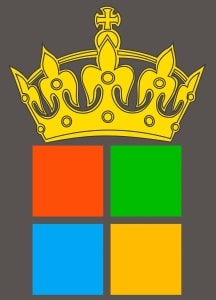Digital Fascism is Still Just Fascism
The Death of the Internet and Karim Khan’s Inbox

Karim Khan, arguing in court, probably against some bad stuff.
The International Criminal Court’s chief prosecutor Karim Khan is not having a good year, and neither is the ICC in general. It was never an easy job, going after people who commit Genocide and Crimes Against Humanity. The ICC tries to prosecute crimes in opposition to regimes like Russia, who do things like murder whole cities and steal children so routinely it’s like doing the laundry for them.
The ICC often have to do that work with few resources, and a ever-growing list of true bastards who need to be stopped. This is complicated by countries who leave the ICC’s legal regime like Russia and America. They (and we) signed up, but left later in order to wage insane and illegal wars against peoples who posed no danger to them (or us).
But right now, it’s even worse than normal, because Khan’s work on Israel has angered the US president.
Khan is under both a cloud of personal scandal and the international political pressure the comes with catching the eye of Donald Trump. His staff have been warned that they could be detained or arrested if they try to enter the United States (including American staffers). His bank accounts have been frozen, he’s been put on leave pending investigation of sexual misconduct in his work place.
All The Tech, None of the Democracy
But the most frightening part of this for the rest of the world is that his email account has been shut down by Microsoft, according to ICC staffers. This may seem like a small thing, especially in the list of other problems he’s facing. In fact, he opened an account with Switzerland-based Proton mail, and presumably got back to emailing people, at least the ones whose email addresses he could remember.
What makes his account suspension so chilling, is what it implies, how it threatens much of the world. His suspension from a Microsoft email account wasn’t court ordered, nor did it legally need to be. Big Tech companies use click-though contracts on everything we use. What they give they can take away at any time, for the benefit of anyone they like, even if who they like is a big angry Cheeto president with tiny, tiny hands.

You don’t have any rights beyond the ones Microsoft gives you in your click-through contracts. And they can, and sometimes do, revoke those too.
Big tech companies were always a flaw in democracy, but it’s never been so apparent. It’s subtle, but what Khan’s troubles with email tell us is that our ability to function in the modern world, especially in the west, is contingent on the good will of American Tech companies. And they don’t have any.
From the moment you sign up, or are signed up by your work, you have almost no rights Big Tech are obliged to respect. Most of the time, this doesn’t matter or isn’t even visible to you. They have the world’s best PR, they have customer support, they even have departments dedicated to making their products easy to use and ubiquitous. But they have no obligation to serve anything or anyone beyond their shareholders, and the government of the United States of America. In 2025 life without access to Big Tech is hardly functional, like not having access to roads or plumbing.
Today it is just one man’s email, and it may seem far away and irrelevant to most people. But any US-based digital service could be next, at the whims of the Donald and his crew of sycophantic weirdos, the same sycophantic weirdos who all came to bend the knee and sit behind him during his inauguration. They are the same ones who effectively rule the internet you’re reading this on.
Revenge of the Nerds
Plenty of annoying nerds have been ringing alarm bells since the 90s, going on about code and privacy and open source software and FREEDOM, mostly in annoying ways. And it is genuinely annoying, even to me, to say this, but they were right all along. When the internet became real life, internet freedoms became real freedoms. And right now, not many of us have much freedom on the internet.
The Trump Administration may have told Microsoft to shut off the ICC’s head prosecutor’s email, or Microsoft may have done it themselves to comply in advance. Either way there was no open and clear legal process for his digital exile, no review, no appeal, and none of the rights we enjoy offline. Our internet lives are subject to the imperial whims of Mad King Donald, and our rights end at the beginning of our internet connection.
The Dead Internet
The internet being a corporate space diminishes it for everyone who isn’t in a tech company C suite. It kills our internet inch by inch. There’s a theory, started on Reddit, that the internet died years ago. By dead, the Redditors meant that most of the traffic on the net is bots talking to other bots, spam, automated grifting, and the like. There is some truth to this, and we all feel it when we go to a social media site or look at unfiltered email.
 It’s become much worse with the rise of AI and more sophisticated bots, suggesting that not only is the internet largely dead, it’s kind of undead. The tech companies have found more ways to influence and monetize us, and the terms of service have stayed just as exploitative as ever.
It’s become much worse with the rise of AI and more sophisticated bots, suggesting that not only is the internet largely dead, it’s kind of undead. The tech companies have found more ways to influence and monetize us, and the terms of service have stayed just as exploitative as ever.
Zombie bots march across the wires, algorithmically fighting and fucking and deceiving each other uselessly while the world’s energy and water are slowly eaten up by data centers. We humans are outnumbered. That’s bad enough without it also becoming the dominion of MAGA, but the sycophancy of tech companies is doing just that.
We are stuck in the fiefs our governments and employers have staked out for us. Whether it’s Google or Microsoft or Apple, your digital life belongs to a few companies, not you. And now, these companies answer to Donald of Orange. Don’t annoy him, and if you do, pray you have good back-ups in some kind of open format. Our digital lives have become contingent on not coming to the attention of the current US administration. Our enterprises everywhere are contingent on obedience to the American oligarchy.
It’s bad, but there are ways to fix this. Alternatives have been around since before Big Tech, but they aren’t always as easy to use. The internet started free and open, and the free and open internet is still out there. None of the Big Tech tools we use are unique and irreplaceable. There are open and free versions of all of them… and those versions often came first. (Big Tech had to steal their ideas from somewhere.)
Reclaiming Our Online lives

The open and free versions of software are often not as polished or usable as Big Tech products are. The communities behind alternative software can be annoying, but they are getting better, given the urgency of the problems.
Tools like NextCloud cover many tech company offerings. Mail hosting from places like Proton are privacy-preserving, and almost every kind of consumer software has a free and open alternative for anything you might want to do. Krita for Photoshop, Jitsi for video conferencing, Audacity for audio recordings. (Personally, I find Audacity easier and quicker than the commercial offerings.)
Anyone can leave the toxic ecosystems of Big Tech, but it’s a lot of work and not worth it for most of us. It’s unlikely, to the point of impossibility, that the public will revolt and leave the current tech ecosystem to become millions of independent small lights on the net. But there’s better ways to approach the problem than everyone having to become a nerd.
Can Democracy Fix the Internet?
I think it can, and whether it does is, as always, up to us. What is possible is this: nations, communities, and blocs, structures democratically answerable to their people, will create public resources. Your government gives you water and waste disposal, electricity and roads. Why can’t they give you online alternatives as well, guided by the rule of law that all the other infrastructure has to obey?
Communities, from national to neighborhood, can also become nodes on the net. We just haven’t known, culturally, to ask for that. We can set ourselves free from the corporate interests of a few billionaire enclaves on the West Coast of the United States.
Freeing our societies from Big Tech is not just something we should do, it’s something we will have to do if we wish to thrive in a free and open society that respects our human rights. The last decade have seen not only the internet dying, but human freedom and flourishing slowly covered in a gray goo of algorithmic lies crafted to serve the powerful and the venal at the expense of our health and hope. Our children are paying for this, our planet is being plundered for this.
It will be hard work, and it will take a while, but freedom is always like that. I hope Karim Khan, and the rest of us, can one day rely on an internet ruled by democratically chosen laws, rather than a few rich and powerful men.

